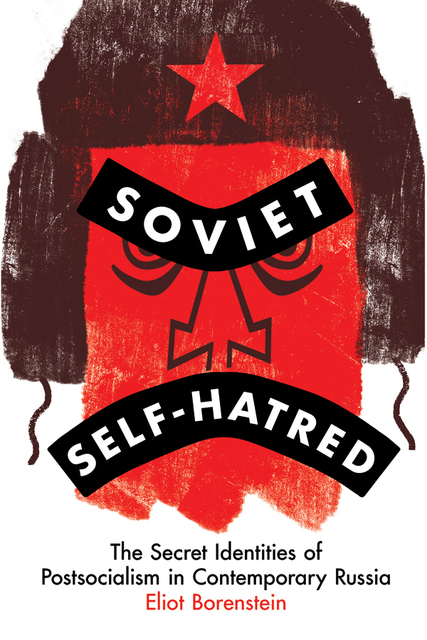Soviet Self-Hatred
The Secret Identities of Postsocialism in Contemporary Russia
Soviet Self-Hatred examines the imaginary Russian identities that emerged following the collapse of the Soviet Union. Eliot Borenstein shows how these identities are best understood as balanced on a simple axis between pride and shame, shifting in response to Russia's standing in the global community, its anxieties about internal dissension and foreign threats, and its stark socioeconomic inequalities.
Through close readings of Russian fiction, films, jokes, songs, fan culture, and Internet memes, Borenstein identifies and analyzes four distinct types with which Russians identify or project onto others. They are the sovok (the Soviet yokel); the New Russian (the despised, ridiculous nouveau riche), the vatnik (the belligerent, jingoistic patriot), and the Orc (the ultraviolent savage derived from a deliberate misreading of Tolkien's epic). Through these contested identities, Soviet Self-Hatred shows how stories people tell about themselves can, tragically, become the stories that others are forced to live.
Eliot Borenstein is Professor of Russian and Slavic Studies at New York University. His books include Plots against Russia and Meanwhile, in Russia.... Follow him on Twitter @eliotb2002 and visit him online at eliotborenstein.net.
Table of Contents
Soviet Self-Hatred
Uncategorized
Soviet Self-Hatred
Eliot Borenstein- This text has 0 annotations
- This text has 0 highlights

